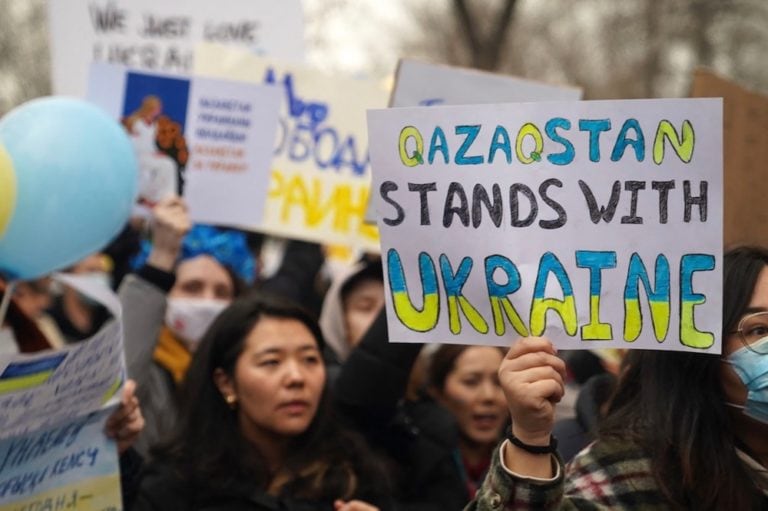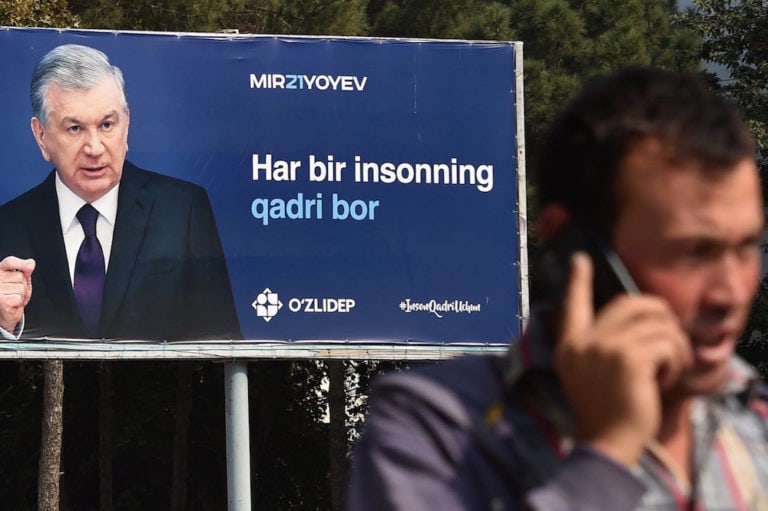(RSF/IFEX) – On 18 July 2005, Erkin Yakubjanov, a Kyrgyzstani journalism student who studies in Osh, southwestern Kyrgyzstan, was arrested by Uzbek border guards as he was investigating the 13 May crackdown on the rebellion in Andijan for the Dolina Mira radio network. In addition, freelance journalist Tulkin Karaev was forced to flee Uzbekistan on […]
(RSF/IFEX) – On 18 July 2005, Erkin Yakubjanov, a Kyrgyzstani journalism student who studies in Osh, southwestern Kyrgyzstan, was arrested by Uzbek border guards as he was investigating the 13 May crackdown on the rebellion in Andijan for the Dolina Mira radio network. In addition, freelance journalist Tulkin Karaev was forced to flee Uzbekistan on 2 July following systematic harassment by the authorities.
RSF has criticised the Uzbek government’s “obstinate, determined and continual” efforts to harass the country’s independent journalists and crush all dissident opinion. “Journalists who dare to mention the events in Andijan are subjected to a witchhunt,” the organisation said. “President Islam Karimov’s refusal to welcome an international (UN, EU and OSCE) fact-finding mission to discuss the rebellion shows that the regime wants to cover up the matter.” RSF called on Interior Minister Zokirjon Almatov to free Yakubjanov at once and stop the legal harassment of Karaev.
Yakubjanov tried to interview border guards in Dustlik but they arrested him for allegedly not having permission to work in Uzbekistan and said they suspected him of working for the Uzbek service of Radio Ozodlik/Radio Free Europe. He was, in fact, on assignment for Dolina Mira as part of a project by the Danish media support group International Media Support (IMS) about the repression in Andijan and its consequences for the region.
Karaev, a freelance journalist who works for the Institute for War and Peace Reporting (IWPR), was forced to flee into exile on 2 July after being harassed since the events in Andijan. His apartment in the southern town of Karshi was placed under 24 hour surveillance by police and he was arrested on 4 June and held without trial for 10 days.
His passport was confiscated and he was placed under house arrest. His passport was returned on 23 June after appeals from several international organisations, including RSF.
Karaev’s wife was contacted on 12 July by a person who said he had turned down a bribe by the prosecutor in the southern region of Kashkadarya to provoke a dispute with Karaev, who was described as an “Islamist extremist.” The informant refused the offer because he personally knew the journalist. The plan would have allowed the authorities to charge Karaev with hooliganism and imprison him again.
Karaev worked for the Uzbek service of Radio Free Europe from 1998 to 2000 and more recently for the Uzbek service of Radio Iran and for IWPR, whose website (http://www.uznews.net) was forced to close after the crackdown in Andijan.


